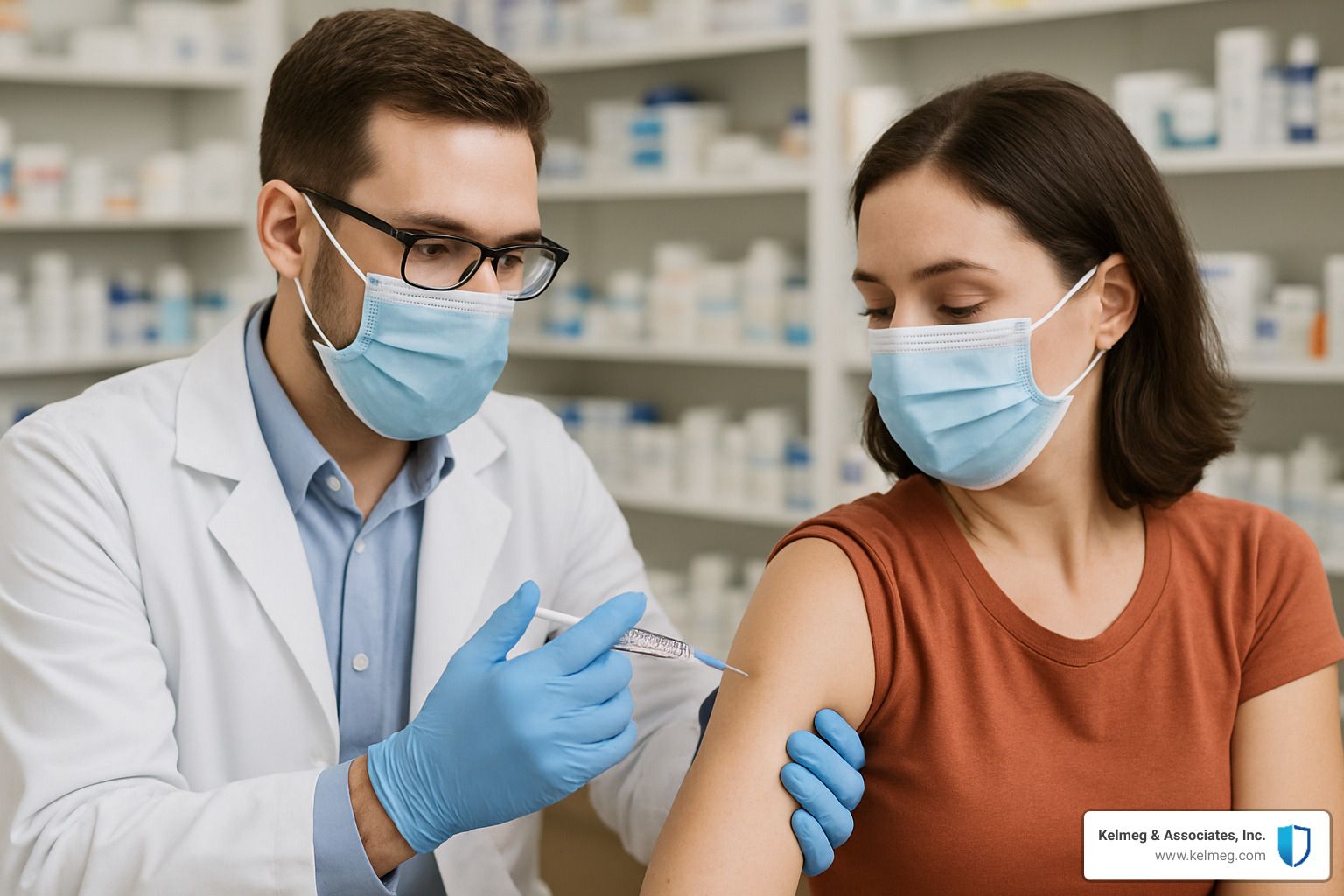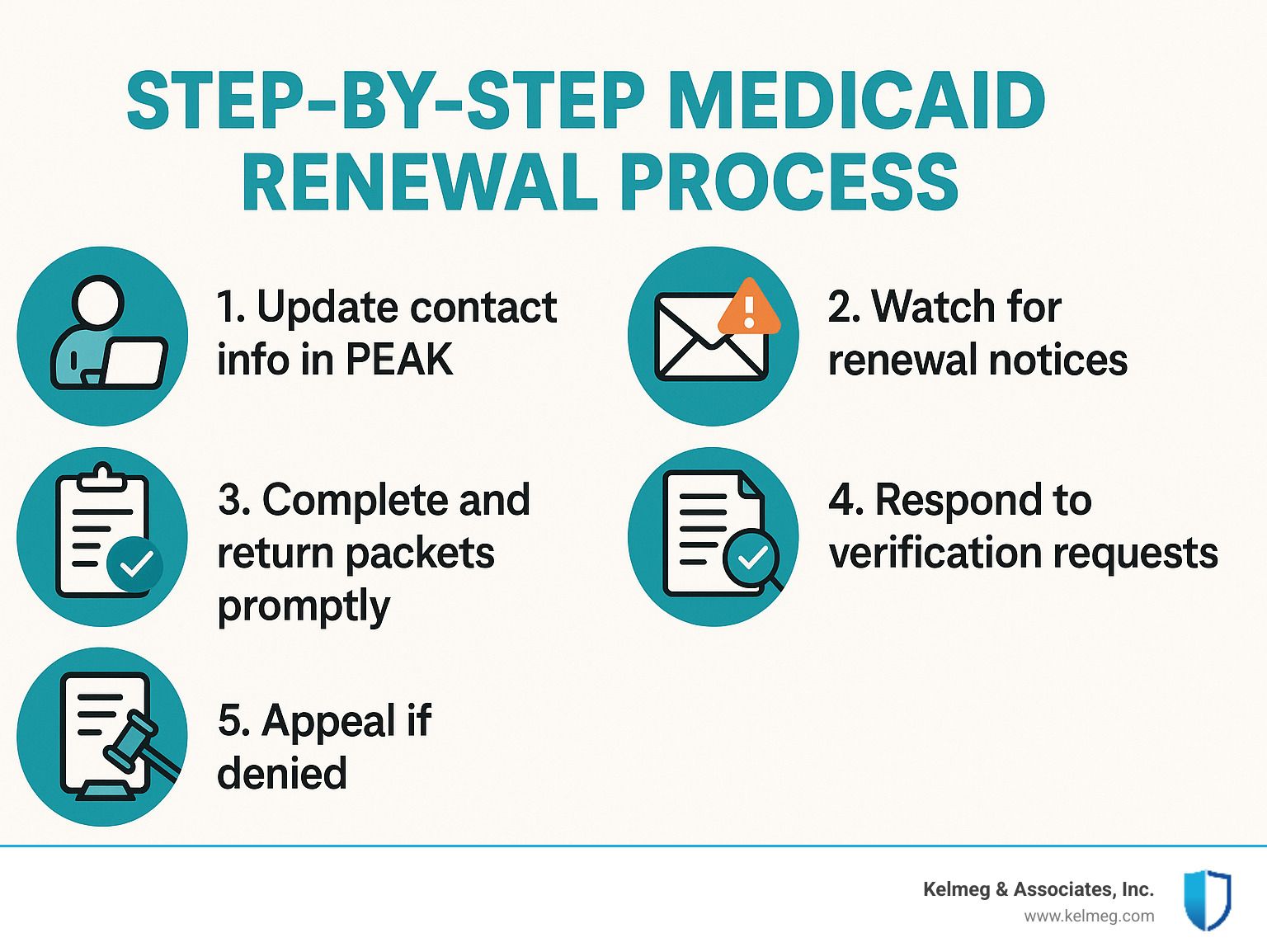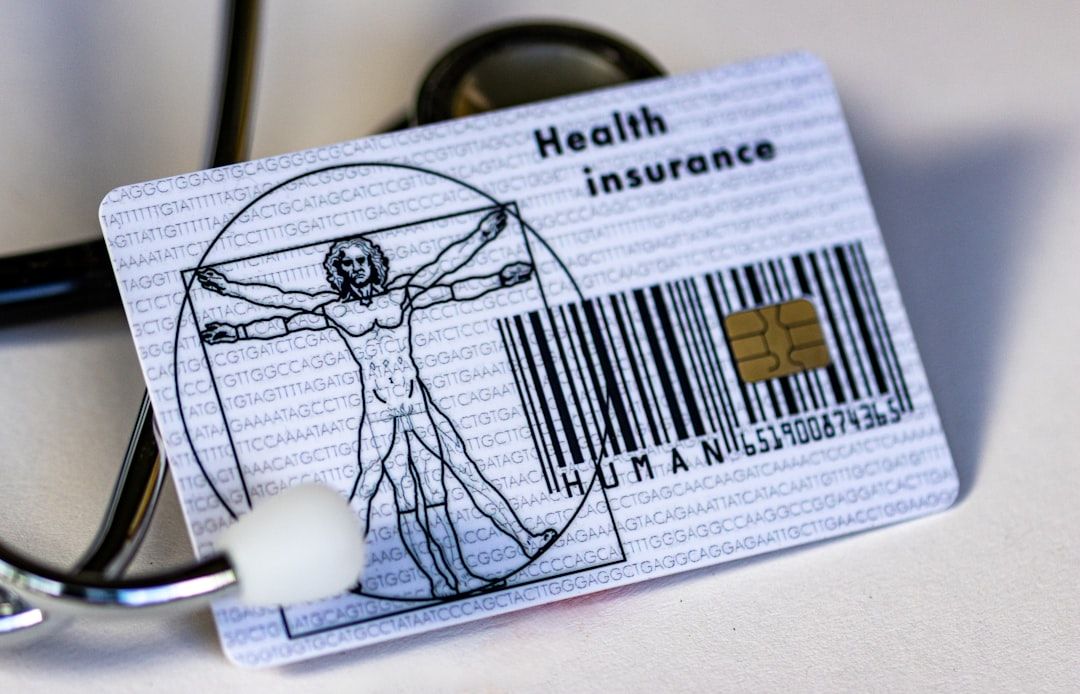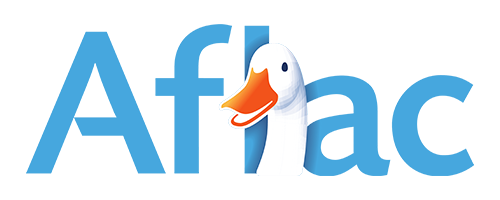Covid Coverage Colorado Style – What You Need to Know
Why Understanding Covid Coverage Colorado Is Critical in 2025
Covid coverage Colorado has changed dramatically since the federal public health emergency ended in May 2023. What was once universally free testing, vaccines, and treatment has shifted to a complex landscape where your coverage depends on your insurance type, employment status, and income level.
Here's what you need to know about Covid coverage Colorado right now:
• Vaccines: Still free for all Health First Colorado (Medicaid) and CHP+ members; covered by most private insurance
• Testing: At-home tests no longer covered by Medicaid/CHP+ as of September 30, 2024; order up to 4 free tests from CovidTests.gov
• Treatment: FDA-approved COVID medications fully covered by Medicaid; private insurance coverage varies by plan
• Renewals: 1.7 million Coloradans must complete Medicaid/CHP+ renewals over 12 months starting spring 2023
The stakes are real. Since October 1, COVID-19 has hospitalized 2,938 people in Colorado - more than twice as many as flu and RSV combined. Yet many Coloradans remain confused about what's covered and where to get care.
Whether you're navigating your first health insurance plan, managing a business seeking group coverage for employees, or facing a Medicaid renewal, understanding these coverage changes isn't optional. The virus hasn't disappeared, but the safety net of universal free care has.
As Kelsey Mackley, an insurance specialist at Kelmeg & Associates, Inc., I've helped hundreds of Colorado families steer the shifting landscape of Covid coverage Colorado since the public health emergency ended. My experience has shown that the right information at the right time can save families thousands of dollars and ensure they get the care they need when it matters most.
Current Status of COVID-19 in Colorado
If you're wondering whether COVID-19 is still something to worry about in Colorado, the short answer is yes. While things have definitely improved since the worst days of the pandemic, the virus hasn't gone away—and understanding Covid coverage Colorado options remains crucial for protecting your family's health and finances.
Let's look at what's happening right now. As of February 11, 2025, 260 people were in Colorado hospitals receiving care for COVID-19. That's actually good news compared to the 395 people hospitalized at the same time last year. But here's what might surprise you: COVID-19 still sends more Coloradans to the hospital than flu and RSV combined.
Since October 1, 2024, COVID-19 has hospitalized 2,938 people in our state. To put that in perspective, that's more than double the combined hospitalizations from flu and RSV during the same period. The disease has tragically claimed the lives of more than 15,000 Coloradans, making it one of the most significant health challenges in our state's history.
What makes COVID-19 particularly tricky to plan for is its unpredictability. Unlike flu, which typically follows a fairly predictable winter pattern, COVID-19 hospitalizations in Colorado have peaked at different times—sometimes late November, sometimes early December. This uncertainty makes having solid Covid coverage Colorado options even more important.
Key Data Points as of 2025
The current numbers tell us a lot about where we stand with respiratory illnesses in Colorado. As of mid-December 2023, emergency room visits for flu were still climbing, with two major flu strains circulating. Meanwhile, COVID-19 continues to be the heavyweight when it comes to serious illness requiring hospitalization.
Here's the snapshot of respiratory illness in our state: COVID-19 accounts for 260 current hospitalizations (down from 395 last year), while flu hospitalizations vary week to week, with some weeks seeing over 50% of ICU patients testing positive for influenza. RSV hospitalizations are at their lowest levels since early fall in most regions.
The XBB.1.5 variant makes up 66% of U.S. infections and 44% in Colorado's region. The encouraging news? Severe cases continue to decline, showing that our immune systems—whether from vaccination or previous infections—are providing some protection against the worst outcomes.
Winter respiratory deaths from pneumonia, influenza, and COVID-19 reached 11% of all deaths versus a pre-pandemic average of 7%. This shows that respiratory illnesses remain a significant health concern that affects real families across Colorado.
COVID-19
260 hospitalizations
Highest burden of the three
Flu
Variable, some weeks 50%+ ICU
Seasonal peaks, rising in winter
RSV
Lowest since early fall
Minimal compared to COVID/flu
Monitoring Tools You Can Use
Colorado gives residents several helpful tools to track COVID-19 trends in their communities. The Colorado Department of Public Health and Environment (CDPHE) maintains dashboards showing COVID-19 test positivity and hospital admission rates by county, with regular updates using CDC data.
Wastewater surveillance has become one of the most reliable ways to spot infection trends before they show up in hospitals. The state tracks viral concentrations across utilities, and recent data shows concentrations falling in 32 utilities, rising in 13, and staying stable in 20. Think of it as an early warning system for your community.
The CDC's county-level risk assessments help inform local public health decisions. Right now, nine counties are at medium risk, while 38 counties have substantial or high transmission levels. These metrics can help you and your family make informed decisions about activities and precautions.
At-home test uptake has become an important part of monitoring, especially since many people test at home rather than seeking formal medical testing. This shift means the true case numbers are likely higher than official counts, making personal preparedness and solid insurance coverage even more important.
Covid coverage Colorado: Testing, Vaccines & Treatment Options
If you're feeling confused about Covid coverage Colorado these days, you're not alone. The end of the federal public health emergency turned what used to be simple (everything was free) into something that feels like a puzzle where the pieces keep changing shape.
Let me break this down in a way that actually makes sense. The most important thing to know is that your coverage now depends entirely on what type of insurance you have. It's not fair, but it's reality.
The bright spot? COVID-19 vaccines are still completely free for anyone with Health First Colorado (Medicaid) or CHP+. No copays, no surprises. The Colorado Department of Public Health and Environment confirms this coverage, and it applies to everyone 6 months and older. Most people only need one dose of the updated vaccine to stay current.
Testing is where things get trickier. As of September 30, 2024, Health First Colorado and CHP+ stopped covering those handy at-home COVID tests. But here's what still works: you can order up to 4 free tests from CovidTests.gov, and if you need a test at your doctor's office, that's still 100% covered.
For treatment, FDA-approved COVID medications remain fully covered under Medicaid programs. Private insurance? Well, that's where you need to check your specific plan because coverage varies wildly.
If you're looking for affordable health coverage in Colorado, understanding these differences can save you hundreds of dollars when you actually need care.
Covid coverage Colorado After the Federal Public Health Emergency
When the federal COVID-19 public health emergency ended on May 11, 2023, it didn't feel like much changed immediately. That's because the changes rolled out slowly, like a slow-motion avalanche that's still happening.
The biggest shift came on September 30, 2024, when Medicaid and CHP+ stopped covering at-home tests. Before that date, members could get tests covered. After October 1, 2024, you're paying out of pocket unless you use the free tests from CovidTests.gov.
Private insurers were no longer required to cover eight at-home tests per month per member after the emergency ended. Some still do, but it's not guaranteed. This created a two-tier system where your income level determines how much COVID protection you can afford.
There's another change that affects everyone: we get less information now. Hospitalizations are reported weekly instead of daily, and testing data is less detailed. It's like trying to steer with a map that's missing half the street names.
Who Pays Now? Covid coverage Colorado Costs by Plan Type
This is where Covid coverage Colorado gets personal. Your insurance card determines everything.
If you have Health First Colorado (Medicaid), you're in the best position. COVID vaccines are completely free, in-office tests are covered 100%, and any FDA-approved COVID treatments won't cost you a penny. The only thing you'll pay for is at-home tests, but remember those 4 free ones from CovidTests.gov.
CHP+ members get nearly the same deal. Vaccines are free, in-office tests are covered, and treatments come with your standard copays (which are usually pretty low). At-home tests aren't covered, but again, there are those free federal tests.
Private insurance holders need to become detectives. Your COVID vaccine should be covered at no cost within 15 days of the CDC recommending it. Testing and treatment? That depends on what your employer chose or what plan you picked. Some plans are generous, others... not so much.
Don't have insurance? This is the hardest spot to be in. Vaccines are free until the federal stockpile runs out, then you'll pay full price. For testing, you can use the CDC's no-cost testing locator if you have symptoms or were exposed. Treatment means paying out of pocket or hunting for assistance programs.
Where to Get Services Statewide

Getting your COVID vaccine in Colorado is actually pretty convenient these days. You can walk into most pharmacies and get it done while you're picking up groceries. CVS, Walgreens, King Soopers, and Safeway all offer vaccines, usually without an appointment needed.
Your primary care doctor is another great option, especially if you have questions about timing or interactions with other medications. Kids should definitely see their pediatrician for shots since pharmacies often have age restrictions.
County health departments and Federally Qualified Health Centers remain reliable options, particularly if you're uninsured or underinsured. They often have sliding fee scales and bilingual staff.
Can't get to a vaccination site? The Mile High United Way Ride United program offers free rides to vaccination appointments. Just call 2-1-1 or visit 211colorado.org. They're available Monday through Friday, 8 a.m. to 5 p.m., and honestly, this service is a lifesaver for many families.
For testing, in-office tests are fully covered for Health First Colorado and CHP+ members. If you're uninsured and have symptoms or were exposed, the CDC testing locator can help you find no-cost options. And everyone, regardless of insurance, can order those four free at-home tests from CovidTests.gov.
The key is knowing your options before you need them. When you're feeling sick is not the time to start researching where to get care.
Navigating Medicaid & CHP+ Renewals Post-PHE
If you're one of the 1.7 million Coloradans enrolled in Health First Colorado (Medicaid) or CHP+, you're facing something that hasn't happened in over three years: regular renewals. The end of the public health emergency brought back normal renewal requirements, and frankly, it's been overwhelming for many families.
Here's what's happening: Colorado sends out roughly 141,000 renewal notices every month. That's a lot of paperwork flying around, and unfortunately, an estimated 315,000 Coloradans may lose their coverage during this transition period. The state is doing its best to manage this massive undertaking, but the responsibility ultimately falls on you to stay on top of your renewal.
During the pandemic, you could count on continuous coverage regardless of changes in your income or family situation. That safety net is gone. We're back to the pre-pandemic system where, on average, 41% of Medicaid members lost coverage annually—sometimes because they no longer qualified, but often simply because of paperwork issues.
The good news? The state has learned from past experiences and implemented some helpful features. Some members qualify for "ex parte" renewals, which means you're automatically renewed without having to fill out forms. Others receive the traditional renewal packets that need to be completed and returned. There's also a "Good Faith Extension" program for people facing renewal challenges, though it's temporary.

The renewal process itself is straightforward, but timing is everything. First, update your contact information in PEAK right away. Second, watch for renewal notices that arrive by mail, email, or text. Third, complete and return your renewal packet by the deadline—usually within 30 days. Fourth, respond quickly to any requests for additional verification. Finally, know your appeal rights if your coverage gets denied.
Avoiding Coverage Gaps
The biggest mistake I see families make is not keeping their contact information current. If the state can't reach you, they can't renew your coverage. It's that simple. Use the Health First Colorado app or visit CO.gov/PEAK to update your address, phone number, and email address. This takes five minutes and could save you months of hassle.
When your renewal packet arrives, don't put it in the pile with other mail. This isn't a bill you can pay later—it's your lifeline to healthcare coverage. You typically have 30 days from the date on the notice to return your signed packet. If you can't write, an "X" witnessed by someone else counts as a valid signature.
Coverage gets terminated for surprisingly simple reasons: not returning the packet on time, leaving sections blank, not responding to requests for pay stubs or other documents, or having an outdated address in the system. Many of these issues are completely preventable with a little attention to detail.
If you're struggling with your renewal and your county office can't help, you can submit an escalation form directly to the state. There's also a 90-day redetermination period where you can request reconsideration if you disagree with their decision about your eligibility.
Losing Medicaid? Next Moves
Losing Health First Colorado or CHP+ coverage isn't the end of the world, even though it might feel like it. The loss creates what's called a qualifying life event, which opens a 60-day Special Enrollment Period for marketplace coverage. This means you can enroll in a private health plan even outside the normal open enrollment period.
Colorado automatically refers people who no longer qualify for Health First Colorado to Connect for Health Colorado to check if they're eligible for other programs. Many families find they qualify for substantial premium tax credits that make marketplace coverage surprisingly affordable.
Your options after losing Medicaid include enrolling in marketplace coverage with potential tax credits, applying for employer-sponsored insurance if it's available, considering short-term coverage as a temporary bridge, or exploring catastrophic plans if you're under 30 or qualify for hardship exemptions.
This is where Covid coverage Colorado considerations become important again. Private marketplace plans may have different coverage rules for COVID-19 testing, vaccines, and treatment compared to what you had with Medicaid. Understanding these differences helps you choose the right plan and avoid surprise costs.
For personalized guidance on health insurance for individuals in Colorado, working with an experienced broker can help you steer these transitions smoothly. The key is acting quickly and not letting gaps in coverage leave you vulnerable when you need healthcare most.
Resources & Support for High-Risk Coloradans
When it comes to Covid coverage Colorado, some folks need extra protection and support. If you're over 65, have a weakened immune system, or deal with chronic health conditions, COVID-19 still poses real risks—even if you're vaccinated.
The reality is that certain groups face higher stakes with this virus. Adults 65 and older, immunocompromised individuals, pregnant women, and people managing conditions like diabetes, heart disease, or lung disease need to stay especially vigilant. The good news? Colorado has maintained support systems specifically designed to help.
For older Coloradans, staying current with vaccines remains your best defense. The CDC specifically recommends that people 50 and older get COVID-19 boosters, along with immunocompromised individuals and pregnant women. If you're on Health First Colorado or CHP+, these boosters won't cost you a penny.
But vaccines are just one piece of the puzzle. Many high-risk Coloradans face practical barriers to getting care—transportation, housing instability, or simply not knowing where to turn for help. That's where Colorado's network of support services becomes crucial.
The Ride United program deserves special mention here. If getting to a vaccination site feels impossible because of transportation, this service provides free rides. Just call 2-1-1 or visit 211colorado.org, and they'll connect you with a ride Monday through Friday, 8 a.m. to 5 p.m. It's one of those programs that removes a real barrier to staying protected.
For our unhoused neighbors, Colorado has maintained special outreach efforts. Renewal packets can be delivered to local shelters, and counties provide alternative ways to complete paperwork for those without traditional addresses. The state recognizes that everyone deserves access to healthcare coverage, regardless of their housing situation.
Beyond healthcare, 2-1-1 Colorado connects residents with comprehensive support—food assistance, housing help, and utility payment assistance. These services often make the difference between someone being able to focus on their health versus worrying about their next meal or keeping the lights on.
Community Programs and Hotlines
Colorado has kept several lifelines open that started during the pandemic's early days. The Colorado Health Emergency Line at 1-877-462-2911 still provides COVID-19 information in multiple languages. Whether you're confused about symptoms, wondering about testing options, or need prevention guidance, real people are there to help.
Your local county health department remains one of your best resources. These folks know their communities inside and out. They can point you toward local testing sites, vaccine clinics, and public health guidance that's specific to where you live. Adams County, Arapahoe County, Boulder County, Denver—they all maintain their own COVID-19 resource pages with information you won't find anywhere else.
Telehealth services have become a game-changer for high-risk individuals. Most insurance plans now cover virtual care options, meaning you can consult with your doctor without leaving home. This is especially valuable during surges or when you're feeling under the weather but aren't sure if it's COVID-19.
Mental health support hasn't been forgotten either. The pandemic took a toll on everyone, but high-risk individuals often face additional stress and isolation. Crisis lines and counseling services remain available, and many are covered by insurance plans.
For more information about prevention strategies and what to do if you get sick, visit cdc.gov/coronavirus. The site provides detailed guidance custom to different risk levels and situations.
Colorado also connects residents with food assistance through Hunger Free Colorado, school meal sites, and food pantries. Housing assistance includes tenant guides, eviction prevention programs, and rent assistance—all critical support for families dealing with economic hardship related to COVID-19.
The bottom line? You don't have to steer this alone. Whether you need help understanding your coverage options, finding transportation to get vaccinated, or accessing basic necessities, Colorado has maintained a network of support designed to help you stay healthy and protected.
Prevention & What to Do If You Get Sick
The good news is that protecting yourself and your family from COVID-19 has gotten simpler. The CDC now treats COVID-19 more like other respiratory viruses, which means less confusion and more straightforward guidance for everyone.
Staying up to date with COVID-19 vaccines remains your best protection against severe illness. Most people only need one dose of the updated vaccine, and remember—vaccines are still 100% covered for Health First Colorado and CHP+ members with no copay.
Beyond vaccines, the basics still work well. Consider wearing masks in crowded indoor spaces, especially during busy shopping seasons or community events. Good ventilation makes a real difference too—crack a window when you can, or use an air purifier if you have one.
The everyday habits your grandmother taught you still matter: cover your coughs, wash your hands regularly, and wipe down surfaces that lots of people touch. Most importantly, stay home when you're feeling sick. It's that simple.
The biggest change in guidance makes life easier: you stay home until symptoms improve and you're fever-free for 24 hours. Then you take extra precautions for five more days when you're around others indoors. No more counting exact days or complicated calendars.
If you develop the telltale signs—cough, runny nose, sore throat, exhaustion, body aches, fever, chills, or that distinctive loss of taste or smell—stay home and test yourself. Symptoms typically show up two to fourteen days after exposure, though some people never develop symptoms at all but can still spread the virus.
Step-by-Step Isolation Guide
When you test positive or feel those familiar symptoms creeping in, here's your roadmap to recovery and keeping others safe.
Start by staying home and avoiding close contact with others in your household if possible. Take a COVID-19 test to confirm what you're dealing with—remember, at-home tests are no longer covered by Covid coverage Colorado through Medicaid, but you can still order four free tests from CovidTests.gov.
Notify anyone you spent time with in the last 48 hours if your test comes back positive. It's not fun, but it's the right thing to do.
Your isolation period is simpler now: stay home until symptoms improve AND you're fever-free for 24 hours without fever-reducing medication. After that, you can return to normal activities but should take additional precautions for five days when around others indoors.
During those five additional days, wear a mask when you're around other people inside. Avoid activities where you can't mask up—like eating indoors with friends or family who don't live with you.
If your symptoms get worse after initially improving, restart the isolation clock. Sometimes COVID-19 can have ups and downs, and it's better to be cautious.
When to Seek Medical Care
Most people with COVID-19 recover at home without needing medical treatment. But if you're in a higher-risk group—over 65, immunocompromised, or managing chronic conditions—contact your healthcare provider early in your illness.
Some symptoms require immediate medical attention: difficulty breathing, persistent chest pain or pressure, confusion, trouble staying awake, or bluish lips or face. Don't wait if you're experiencing any of these.
Early treatment can make a real difference if you're at higher risk. FDA-approved medications like Paxlovid work best when started within the first few days of symptoms. The good news for Covid coverage Colorado is that these treatments are fully covered for Health First Colorado and CHP+ members, while private insurance coverage varies by plan.
Telemedicine has become a game-changer for initial COVID-19 care. You can get assessed, determine if you need antiviral treatment, and receive guidance—all from home. Most insurance plans cover telehealth visits with the same copays as in-person visits.
Consider seeking early treatment if you're pregnant, have diabetes, heart disease, lung disease, or take medications that suppress your immune system. Your healthcare provider can help determine if antiviral treatment makes sense for your situation.
For comprehensive guidance on COVID-19 coverage and care, including understanding what treatments your specific plan covers and how to access care efficiently, professional guidance can save you time, money, and worry when you're already feeling unwell.
Frequently Asked Questions about Covid coverage Colorado
These are the questions I hear most often from Colorado families trying to understand their Covid coverage Colorado options. The answers have changed significantly since the public health emergency ended, so let's clear up the confusion.
Are COVID-19 vaccines still free in Colorado?
Yes, vaccines are still free for most Coloradans, though the details matter. If you have Health First Colorado (Medicaid) or CHP+, your vaccines are completely covered with no copay. This includes all recommended doses and boosters.
For those with private insurance, vaccines must be covered at no cost within 15 days after the Advisory Committee on Immunization Practices makes their recommendation. This is still required under federal law, so your insurance company can't charge you.
Uninsured individuals can get free vaccines until the federal stockpile runs out. After that point, you'll need to pay out-of-pocket or find coverage. Children under 19 who are uninsured can still get free vaccines through the Vaccines for Children program.
The CDC recommends that everyone 6 months and older stay up to date with COVID-19 vaccines. Most people only need one dose of the updated vaccine, though if you're immunocompromised, you may need additional doses based on your medical history.
How many at-home tests can I still get at no cost?
This is where things get tricky, and the answer changed on September 30, 2024. That's when Health First Colorado and CHP+ stopped covering at-home COVID-19 tests.
Here's what you can still get for free: Everyone in Colorado can order up to 4 free at-home COVID-19 tests from CovidTests.gov, regardless of insurance status. This applies to every household across the country.
If you have private insurance, your plan is no longer required to cover at-home tests. Some plans may still offer coverage as an extra benefit, but you'll need to check with your specific insurance company.
The good news for Medicaid and CHP+ members: In-office COVID-19 tests remain 100% covered. If you're feeling sick or have been exposed to COVID-19, getting tested at your doctor's office or a clinic might be your best bet for covered testing.
What happens if I miss my Medicaid renewal deadline?
Don't panic—missing your deadline doesn't automatically mean you're out of luck. I've helped many families steer this exact situation, and there are still options available.
Contact your county eligibility office immediately. Submit your renewal packet even if it's late, because there may be a grace period you can still take advantage of. You can also request what's called a "Good Faith Extension" if you're facing challenges with your renewal.
You have 90 days to request reconsideration of any eligibility decision. If you're found eligible during this period, you can request that your coverage be backdated to avoid gaps in coverage. This is especially important if you've had medical expenses while your coverage was suspended.
If you're no longer eligible for Medicaid, losing coverage creates what's called a qualifying life event. This gives you a 60-day Special Enrollment Period to enroll in marketplace coverage through Connect for Health Colorado. Many families who lose Medicaid qualify for substantial premium tax credits that make private insurance affordable.
The state has made changes to reduce procedural denials, including reviewing individual eligibility rather than entire household eligibility. This has helped some members get their coverage reinstated automatically.
Time is critical. The sooner you act, the more options you have available. If you're feeling overwhelmed by the renewal process or exploring marketplace options, working with an experienced insurance professional can help you avoid coverage gaps and find the best solution for your family's needs.
Conclusion & Next Steps
Covid coverage Colorado has transformed dramatically since the pandemic began, but one thing remains constant: having the right information and coverage can make all the difference when you need care most.
After helping hundreds of Colorado families steer these changes since the public health emergency ended, I've seen how confusing this landscape can be. The good news? You don't have to figure it out alone.
The reality is straightforward: vaccines remain free for Health First Colorado and CHP+ members, while most private insurance plans cover them too. Testing coverage has shifted—at-home tests are no longer covered by Medicaid after September 30, 2024, but you can still order four free tests from CovidTests.gov. And here's something that surprises many people: COVID-19 continues to send more Coloradans to hospitals than flu and RSV combined.
The biggest challenge many families face isn't the virus itself—it's navigating the 1.7 million Medicaid renewals happening across our state. Missing a renewal deadline or not understanding your options can leave you without coverage exactly when you need it most.
At Kelmeg & Associates, Inc., we've built our practice around one simple principle: expert guidance shouldn't cost you extra. Whether you're in Boulder, Adams County, Lafayette, or Broomfield, we understand the unique challenges facing Colorado families today.
We help you with the things that matter most: understanding what your current plan covers for COVID-19 care, keeping your Medicaid benefits during renewals, finding affordable marketplace coverage if you lose Medicaid, and choosing the right plan for your family's specific needs.
The landscape of Covid coverage Colorado will keep evolving. New variants will emerge, federal policies will change, and our state will adapt its response. But here's what won't change: having the right coverage and staying informed protects both your health and your financial well-being
Don't wait until you're facing a health crisis or coverage gap to understand your options. The best time to review your coverage is when you're healthy and have time to make thoughtful decisions.
Get more information about COVID coverage services and let our experience guide you through Colorado's healthcare landscape. COVID-19 hasn't disappeared—but with the right coverage and support, you can face whatever comes next with confidence.
We're here to help you steer every step of the way, at no extra cost to you. Because when it comes to your family's health coverage, you deserve more than just a policy—you deserve peace of mind.













